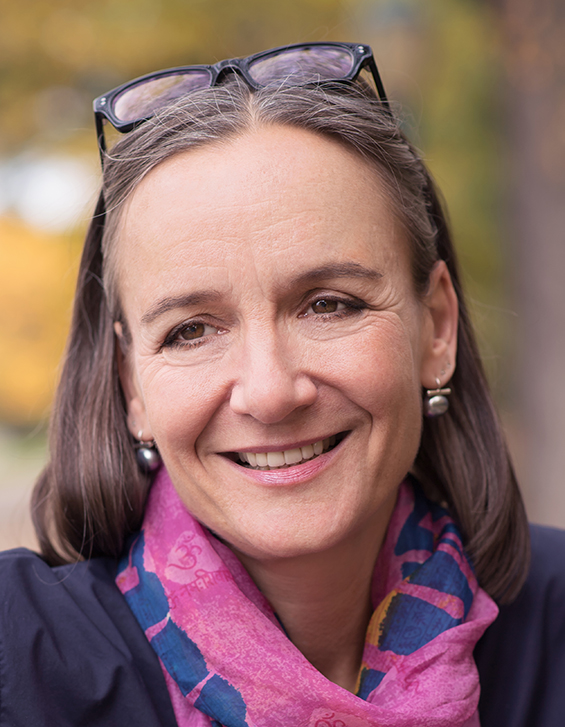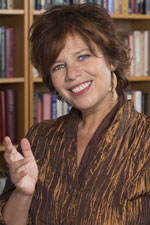Advanced Skills (ES2) Retreat Style Course in NYC – 2017/2018
In AEDP, we pride ourselves in how thoroughly and deeply we seek to both (i) undo aloneness and (ii) engage in rigorous clinical teaching with skilled accompaniment. We are proud to say that our ES courses feature a high number of highly skilled assistants – and this course is no different.
AEDP Advanced Skills is for practitioners who have completed AEDP Essential Skills (ES1). Practical in its orientation, this course focuses on helping you both (i) learn new advanced AEDP skills, and (ii) cultivate and fine-tune the AEDP skills you already have. In both left-brained and right-brained ways, we aim to teach you specific interventions and techniques that are concrete and specific that will help you with your more challenging clients. While reviewing and deepening your AEDP essential skills throughout, the Advanced Training will teach the different advanced skill sets necessary to the in-depth practice of AEDP, with theoretical foundations and clinical videotapes, as well as with group experiential exercises.
How-To, Videotapes and Experiential Learning
The AEDP Advanced Skills course aims to help you to really “work it,” AEDP style, while troubleshooting what stands in the way of your doing so. This course focuses on learning new advanced skills and reviewing, deepening and improving basic AEDP skills. You will develop more of a felt sense of how to entrain the quintessentially AEDP practice of “stay with it and stay with me” and how to keep the transformational process unfolding in all states. Experienced AEDP practitioners will closely assist with the experiential practices.
This course is for Psychologists, Social Workers, and Counselors – Intermediate and Advanced Levels
Week One
(helmed by Natasha Prenn, LCSW):
Day 1: “Oh, won’t you stay just a little bit longer.” Scaffolding and fine-tuning the experiential interventions of interpersonal and intrapsychic work. Presenter: Natasha Prenn, LCSW
Day 2: “What feeling?” Working with patients who don’t easily take to AEDP: advanced defense work Part 1: Building self and self compassion. Presenter: SueAnne Piliero, Ph.D.
Day 3: Advanced Defense Work Part 2: When Defenses don’t melt and can’t easily be bypassed.
Guest Presenter, Diana Fosha, Ph.D.
Day 4: Pathogenic Affects: Working with shame and guilt in AEDP.
Guest Presenter, Ben Lipton, LCSW
Day 5: It feels good like I know it should: Increasing receptive affective capacities aka “taking it in.” Presenter: Natasha Prenn, LCSW
Week Two
(helmed by SueAnne Piliero, Ph.D.)
Day 1: Attunement, Co-regulation, and “Fierce Love”: 3 Essential Skills in Healing Attachment Trauma and transforming the Self. Presenter: SueAnne Piliero, Ph.D.
Day 2: Just portrayals: an emotion processing option. Presenter: Natasha Prenn, LCSW
Day 3: When positive experiences trigger negative reactions. Trauma, dissociation, ‘parts’ work; AEDP-IR. Guest Presenter, Jerry Lamagna, LCSW
Day 4: Pathogenic/Maladaptive affects: exteneded State 1 work; use of self; top-down as well as bottom-up restructuring strategies. Guest Presenter, Eileen Russell, Ph.D.
Day 5: Advanced Metaprocessing: Memory reconsolidation at work.
Presenter: SueAnne Piliero, Ph.D.
Course Objectives:
At the end of this program, participants will be able to:
- Demonstrate how to accurately moment-to-moment track and differentiate different aspects within the Triangle of Experience, including both verbal and somatic processes, to optimize attunement and accelerate the healing process.
- Describe different attachment styles and utilize different interventions according to attachment style.
- Apply various ways to regulate anxiety, bypass defenses and other inhibitory forces which block progress in therapy.
- Select ways to access core affective experiences.
- Utilize the healing potential of innate transformance strivings as a catalyst to maximize patient’s healing.
- Explain parts/multiplicity with clients.
- Detect when affective experience is genuine versus defensive.
- Identify and formulate mourning the self in sessions.
- Arrange appropriate self-disclosure with clients to create safety and attachment security.
Course Dates and Times:
Week 1:
Sunday, October 15, 2017 (evening only)
Monday, October 16, 2017 through Friday, October 20, 2017
Natasha Prenn, LCSW – Helm
Guest Faculty: SueAnne Piliero, PhD, Diana Fosha, PhD, Benjamin Lipton, LCSW
Week 2:
Sunday March 11, 2018 (evening only)
Monday, March 12, 2018 through Friday March 16th, 2018
SueAnne Piliero, PhD – Helm
Guest Faculty: Natasha Prenn, LCSW, Eileen Russell, PhD, Jerry Lamagna, LCSW
Hours:
Sunday 5:00pm – 7:00pm
Monday – Friday 9:00am – 5:00pm
View Daily Agenda here
Meet the Presenters:
Natasha Prenn, LCSW
Natasha Prenn, LCSW, is a psychotherapist, speaker, educator, author and life coach. As a senior faculty member of the AEDP Institute (Accelerated Experiential Dynamic Psychotherapy), she pioneered the AEDP Essential and Advanced Skills Courses, and is well known as a therapists’ therapist across the U.S. and abroad.
Natasha, an engaging presenter, is noted for her ability to translate AEDP theory into user-friendly steps, and for her enthusiastic belief that the mechanisms of the magic of experiential-dynamic work are teachable and therefore learnable skills. Her obsession with languaging interventions and skills training has led to her co-authoring a monograph for APA: Supervision Essentials for Accelerated Experiential Dynamic Psychotherapy. This book, which Natasha wrote with Diana Fosha, is filled with practical skills to wield the power of AEDP’s theory and practice into psychotherapy supervision.
Natasha offers coaching and psychotherapy to individuals and couples, and consults with psychotherapists individually and in small groups by invitation. She is a founding editor of Transformance: The AEDP Journal, a blogger for CSAR, and the author of the forthcoming AEDP Skills Manual. Some of her articles and book chapters are available on the AEDP website.
SueAnne Piliero, PhD
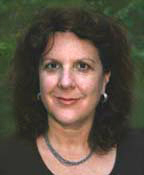 SueAnne Piliero, PhD, has been trained and supervised intensively in AEDP, and is a founding member of the AEDP Institute.
SueAnne Piliero, PhD, has been trained and supervised intensively in AEDP, and is a founding member of the AEDP Institute.
Dr. Piliero provides AEDP training to clinicians and graduate students throughout the US, and has given seminars and workshops to various universities and mental health organizations nationwide. She is a lead trainer in the AEDP Essential Skills Course, a lead supervisor of the AEDP Core Training Program in New York City, and oversees the NYC AEDP Seminar Series Program.
Dr. Piliero received her doctorate from Adelphi University, and her master’s degree in human development and psychology from Harvard. Her clinical interests are in trauma, PTSD, loss, dissociation, and the ways in which the mind, body, spirit is powerfully poised to transform them. In addition to AEDP, Dr. Piliero is trained in Somatic Experiencing and Brainspotting.
She teaches, supervises and is in private practice in New York City.
Diana Fosha, PhD
Diana Fosha, Ph.D., is the developer of AEDP (Accelerated Experiential Dynamic Psychotherapy), a healing-based, transformation-oriented model of psychotherapeutic treatment; she is Founder and Director of the AEDP Institute. Based in New York City, she has been on the faculties of the Departments of Psychiatry and Psychology of NYU and St. Luke's/Roosevelt Medical Centers (now Mount Sinai) in NYC, and of the doctoral programs in clinical psychology at the Derner Institute for Advanced Psychological Studies and The City University of New York. Diana Fosha is the author of The Transforming Power of Affect: A Model for Accelerated Change (Basic Books, 2000), and of numerous articles on an attachment-emotion-transformation focused experiential treatment model. She is senior editor, with Daniel Siegel and Marion Solomon, of The Healing Power of Emotion: Affective Neuroscience, Development & Clinical Practice (Norton, 2009), part of Norton’s Interpersonal Neurobiology series, and co-author, with Natasha Prenn, of Essentials of AEDP Supervision (APA, 2016). APA has issued 3 DVDs of her APA work. [Learn more and purchase here.]
She has contributed chapters to, among others, Clinical pearls of wisdom: 21 leading therapists offer their key insights, edited by M. Kerman (Norton, 2009); Complex traumatic stress disorders: An evidence-based clinician's guide, edited by C. Courtois & J. D. Ford (Guilford, 2009); Healing trauma: Attachment, mind, body and brain, edited by Marion Solomon and Daniel Siegel (Norton, 2003); and to The comprehensive handbook of psychotherapy, Volume 1: Psychodynamic and object relations therapies, edited by J. J. Magnavita (Wiley, 2002).
Dr. Diana Fosha graduated magna cum laude with a BA in psychology from Barnard College and received her PhD in clinical psychology from the City university of New York (CUNY). For the last 20 years, she has been active in promoting a scientific basis for a healing oriented attachment, emotion and transformation focused therapy.
Known for her powerful, precise yet simultaneously poetic and evocative affective writing style, Diana's phrases --- "undoing aloneness," "existing in the heart and mind of the other," "True Other," "make the implicit explicit and the explicit experiential," "stay with it and stay with me," "rigor without shame" and "judicious self-disclosure" -- capture the ethos of AEDP.
Watch Diana's Trusting Vitality video here.
Benjamin Lipton, LCSW
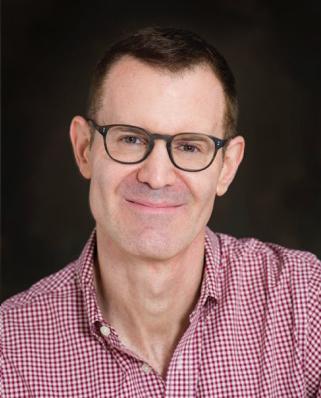 Benjamin Lipton, LCSW, is a founding faculty member of the AEDP Institute. He is based in New York City and travels nationally and internationally to teach and present AEDP to a broad range of professional audiences. Mr. Lipton pioneered the first AEDP Advanced Core Training programs (Bay Area and Seattle) and currently co-leads the AEDP Retreat Style Essential Skills course. His open and engaging teaching style and skill in translating complex ideas into clear and accessible learning points receives consistent praise from his audiences. Mr. Lipton is the editor of From Crisis to Crossroads: Gay Men Living with Chronic Illnesses and Disabilities (Haworth Press) and has published many clinical articles and book chapters in psychology and social service journals over the past two decades. His most recent article, co-authored with Diana Fosha, is on working with attachment in AEDP; Attachment as a Transformative Process in AEDP: Operationalizing the Intersection of Attachment Theory and Affective Neuroscience. Mr. Lipton has held adjunct faculty appointments at Columbia Presbyterian Department of Psychiatry and New York University School of Social Work and he serves on the Editorial Board of the Journal of Gay and Lesbian Social Services. Previously, he was the Director of Clinical Services at Gay Men’s Health Crisis (GMHC), the world’s first and largest HIV/AIDS service organization. In addition to his expertise in AEDP, Mr. Lipton has training in EMDR, Internal Family Systems, Somatic Experiencing, Solution-Focused therapy and psychodynamic psychotherapy. Mr. Lipton is committed to the foundational principle of human development that change for the better, at every level of civilization, flourishes when people feel safe enough to be curious and take necessary risks. He is passionately dedicated to bringing this alive in both his practice and teaching.
Benjamin Lipton, LCSW, is a founding faculty member of the AEDP Institute. He is based in New York City and travels nationally and internationally to teach and present AEDP to a broad range of professional audiences. Mr. Lipton pioneered the first AEDP Advanced Core Training programs (Bay Area and Seattle) and currently co-leads the AEDP Retreat Style Essential Skills course. His open and engaging teaching style and skill in translating complex ideas into clear and accessible learning points receives consistent praise from his audiences. Mr. Lipton is the editor of From Crisis to Crossroads: Gay Men Living with Chronic Illnesses and Disabilities (Haworth Press) and has published many clinical articles and book chapters in psychology and social service journals over the past two decades. His most recent article, co-authored with Diana Fosha, is on working with attachment in AEDP; Attachment as a Transformative Process in AEDP: Operationalizing the Intersection of Attachment Theory and Affective Neuroscience. Mr. Lipton has held adjunct faculty appointments at Columbia Presbyterian Department of Psychiatry and New York University School of Social Work and he serves on the Editorial Board of the Journal of Gay and Lesbian Social Services. Previously, he was the Director of Clinical Services at Gay Men’s Health Crisis (GMHC), the world’s first and largest HIV/AIDS service organization. In addition to his expertise in AEDP, Mr. Lipton has training in EMDR, Internal Family Systems, Somatic Experiencing, Solution-Focused therapy and psychodynamic psychotherapy. Mr. Lipton is committed to the foundational principle of human development that change for the better, at every level of civilization, flourishes when people feel safe enough to be curious and take necessary risks. He is passionately dedicated to bringing this alive in both his practice and teaching.
Jerry Lamagna, LCSW
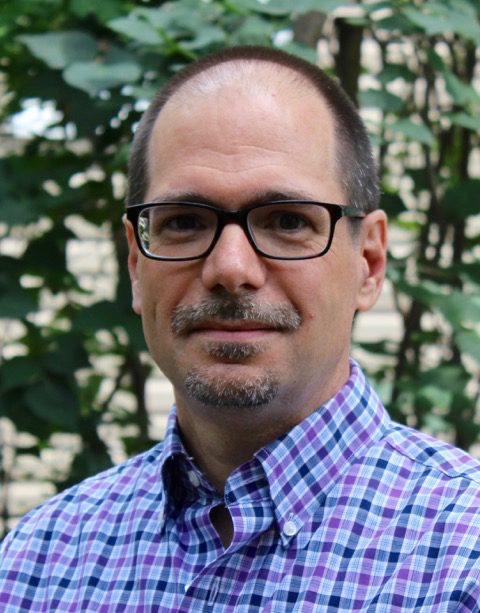 Jerry Lamagna, LCSW, is a psychotherapist in private practice in New York City and Westfield, New Jersey. After completing his graduate studies at Adelphi University in 1993, he participated in a six month residency at the Caron Foundation’s Center for Self Development, and for six years thereafter his work focused on issues in chemical dependency/ACOA treatment. He currently works with individuals in AEDP psychotherapy, addressing problems related to trauma, dissociation, addiction, depression, low self worth and personality disorders. Throughout his career, Mr. Lamagna’s interest in affect based, experiential treatment approaches has led to his extensive training in psychodrama, EMDR, ego state therapy, trauma/dissociative disorder treatment, and most recently, AEDP. The study of these modalities has inspired his ongoing efforts to integrate relational, intra-psychic, and experiential elements into his clinical work. Mr. Lamagna, along with Dr. Kari Gleiser has developed a modified version of AEDP for the treatment of dissociative disorders. He has presented at national conferences sponsored by the International Society for the Study of Trauma and Dissociation (ISSTD), the Society for the Exploration of Psychotherapy Integration (SEPI), the International Experiential and Dynamic Therapy Association (IEDTA), the New Jersey chapter of NASW and the AEDP Institute. In January 2007, the Journal of Trauma and Dissociation published a paper written by Mr. Lamagna and Dr. Gleiser entitled “Building a secure internal attachment: An intra-relational approach to ego strengthening and emotional processing with chronically traumatized clients.” A subsequent article, "Of the self, by the self and for the self:Internal Attachment, attunement and psychological change" was published in the Journal of Psychotherapy Integration in 2012.
Jerry Lamagna, LCSW, is a psychotherapist in private practice in New York City and Westfield, New Jersey. After completing his graduate studies at Adelphi University in 1993, he participated in a six month residency at the Caron Foundation’s Center for Self Development, and for six years thereafter his work focused on issues in chemical dependency/ACOA treatment. He currently works with individuals in AEDP psychotherapy, addressing problems related to trauma, dissociation, addiction, depression, low self worth and personality disorders. Throughout his career, Mr. Lamagna’s interest in affect based, experiential treatment approaches has led to his extensive training in psychodrama, EMDR, ego state therapy, trauma/dissociative disorder treatment, and most recently, AEDP. The study of these modalities has inspired his ongoing efforts to integrate relational, intra-psychic, and experiential elements into his clinical work. Mr. Lamagna, along with Dr. Kari Gleiser has developed a modified version of AEDP for the treatment of dissociative disorders. He has presented at national conferences sponsored by the International Society for the Study of Trauma and Dissociation (ISSTD), the Society for the Exploration of Psychotherapy Integration (SEPI), the International Experiential and Dynamic Therapy Association (IEDTA), the New Jersey chapter of NASW and the AEDP Institute. In January 2007, the Journal of Trauma and Dissociation published a paper written by Mr. Lamagna and Dr. Gleiser entitled “Building a secure internal attachment: An intra-relational approach to ego strengthening and emotional processing with chronically traumatized clients.” A subsequent article, "Of the self, by the self and for the self:Internal Attachment, attunement and psychological change" was published in the Journal of Psychotherapy Integration in 2012.
Eileen M. Russell, PhD
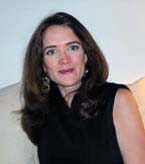
Eileen M. Russell, PhD, has been trained and supervised intensively in AEDP since 1996 by Diana Fosha, PhD and Jenna Osiason, PhD. In addition, Dr. Russell is trained in EMDR and in Eugene Gendlin’s Focusing. Dr. Russell received her doctorate from Fordham University and received her clinical training from New York Hospital/Cornell Medical Center and New York University Medical/Bellevue Hospital Center. Until 2004, she was senior psychologist at NYU Medical/Bellevue Hospital, where she worked with people dually diagnosed with substance dependence and psychiatric disorders. Dr. Russell is currently a part-time Clinical Instructor in the Department of Psychiatry at NYU Medical Center where she supervises students in AEDP and dynamic psychotherapy and the lead supervisor of one of two New York City AEDP Core Training Groups. She has taught AEDP seminars at several universities and clinics in New York and New Jersey and supervises clinicians learning AEDP.
In her book, Restoring Resilience: Discovering your Clients' Capacity for Healing (W.W. Norton & Company, June 2015), Eileen draws on interpersonal neurobiology, affect regulation research, a number of theoretical orientations and clinical experience to show therapists how to build from what’s going right in clients’ lives, help them cultivate and deepen their native resilience and create lasting change. Together with Diana Fosha, she has co-authored a paper on "Transformational affects and core state in AEDP" for the Journal of Psychotherapy Integration. Her research and writing interests include the development of AEDP theory and practice, and spirituality in psychotherapy. She is a licensed clinical psychologist in private practice in New York City and New Jersey.
Course Location:
Federation of Protestant Welfare Agencies (FPWA)
40 Broad Street, 5th Floor
New York, NY 10004
Website: www.fpwa.org
Registration
- $3,200 – Online registration, one payment in full
- $3,400 – Online registration, payment plan
- $50 additional discount for AEDP Institute Members (must be logged in to receive credit)
COURSE QUESTIONS, REGISTRATION and PAYMENT PLANS CONTACT
AEDP Institute
Karen Newell
karen@rcassidy.com
866-992-9399 x 105
ADA ACCOMODATIONS:
Please contact our office 866-992-9399 if you have questions about disability access or accommodations.
Continuing Education
This program is eligible for 65 CE Hours of continuing education credit through our co-sponsor R. Cassidy Seminars. CE Credits are included in the course fee.
A link to your evaluation and certificate will be emailed to you a few days after the event’s completion
Satisfactory Completion
Participants must have paid tuition fee, signed in, attended the entire seminar, completed an evaluation, and signed out in order to receive a certificate. Failure to sign in or out will result in forfeiture of credit for the entire course. No exceptions will be made. Partial credit is not available.
Psychologists R.Cassidy Seminars is approved by the American Psychological Association (APA) to offer continuing education for psychologists. R. Cassidy Seminars maintains responsibility for this program. 65 CE hours.
NY: R. Cassidy Seminars is recognized by the New York State Education Department’s State Board for Mental Health Practitioners as an approved provider of continuing education for licensed psychoanalysts. #P-0005. 65 clock hours.
Social Workers R. Cassidy Seminars, ACE provider #1082, is approved as a provider for social work continuing education by the Association of Social Work Boards (ASWB) www.aswb.org, through the Approved Continuing Education (ACE) Program. R. Cassidy Seminars maintains responsibility for the program. Approval Period: April 15, 2015-April 15, 2018. Social workers should contact their regulatory board to determine course approval. Social workers participating in this course will receive 65 continuing education clock hours.
CA: The Board of Behavioral Sciences has deferred CE course approvals to APA and ASWB for its licensees. See those approvals under Psychologists and Social Workers
NJ Social Workers: An application has been made for consideration of approval for 65 Clinical CE Credits.
NY: R. Cassidy Seminars is recognized by the New York State Education Department’s State Board for Social Work as an approved provider (#0006) of continuing education for licensed social workers. This program is approved for 65 contact hours live.
OH: R. Cassidy Seminars is an approved provider by the Ohio Counselor, Social Worker and Marriage and Family Therapist Board for 6 clock hours, #RCST110701
Counselors/ Marriage and Family Therapists:
CA: The Board of Behavioral Sciences has deferred CE course approvals to APA and ASWB for its licensees. See those approvals under Psychologists and Social Workers.
Other States: If your state is not specifically listed, nearly all state Counselor and MFT boards accept either APA or ASWB approval, or are reciprocal with other state licensing board approvals, such as those listed below. Check with your board to be sure. The Ohio Board includes Counselors and MFTs.
IL: R. Cassidy Seminars is approved to offer continuing education to Marriage and Family Therapists by the Illinois Department of Financial and Professional Regulation provider #168000141. 65 Continuing Education Credits/Hours.
NY-LMHCs: R. Cassidy Seminars is recognized by the New York State Education Department’s State Board of Mental Health Practitioners as an approved provider of continuing education for licensed mental health counselors. #MHC-0015. 65 contact hours.
NY-LMFTs: R. Cassidy Seminars is recognized by the New York State Education Department’s State Board of Mental Health Practitioners as an approved provider of continuing education for licensed marriage and family therapists. #MFT-0011. 65 contact hours.
OH: R. Cassidy Seminars is an approved provider by the Ohio Counselor, Social Worker and Marriage and Family Therapist Board for 65 clock hours, #RCST110701
TX: R. Cassidy Seminars is approved by the Texas Board of Examiners of Marriage and Family Therapists to provide CE offerings for MFTs. Provider Number 151. 65 Continuing Education Credits/Hours.
Creative Arts Therapists
NY: R. Cassidy Seminars is recognized by the New York State Education Department’s State Board of Mental Health Practitioners as an approved provider of continuing education for licensed creative arts therapists. #CAT-0005. 65 contact hours.
Disability Access – If you require ADA accommodations please contact our office 10 days or more before the event. We cannot ensure accommodations without adequate prior notification.
Please Note: Licensing Boards change regulations often and while we attempt to stay abreast of their most recent changes, if you have questions or concerns about this course meeting your specific board’s approval, we recommend you contact your board directly to obtain a ruling.
To see our Refund Policy or to file a Grievance, click here.

